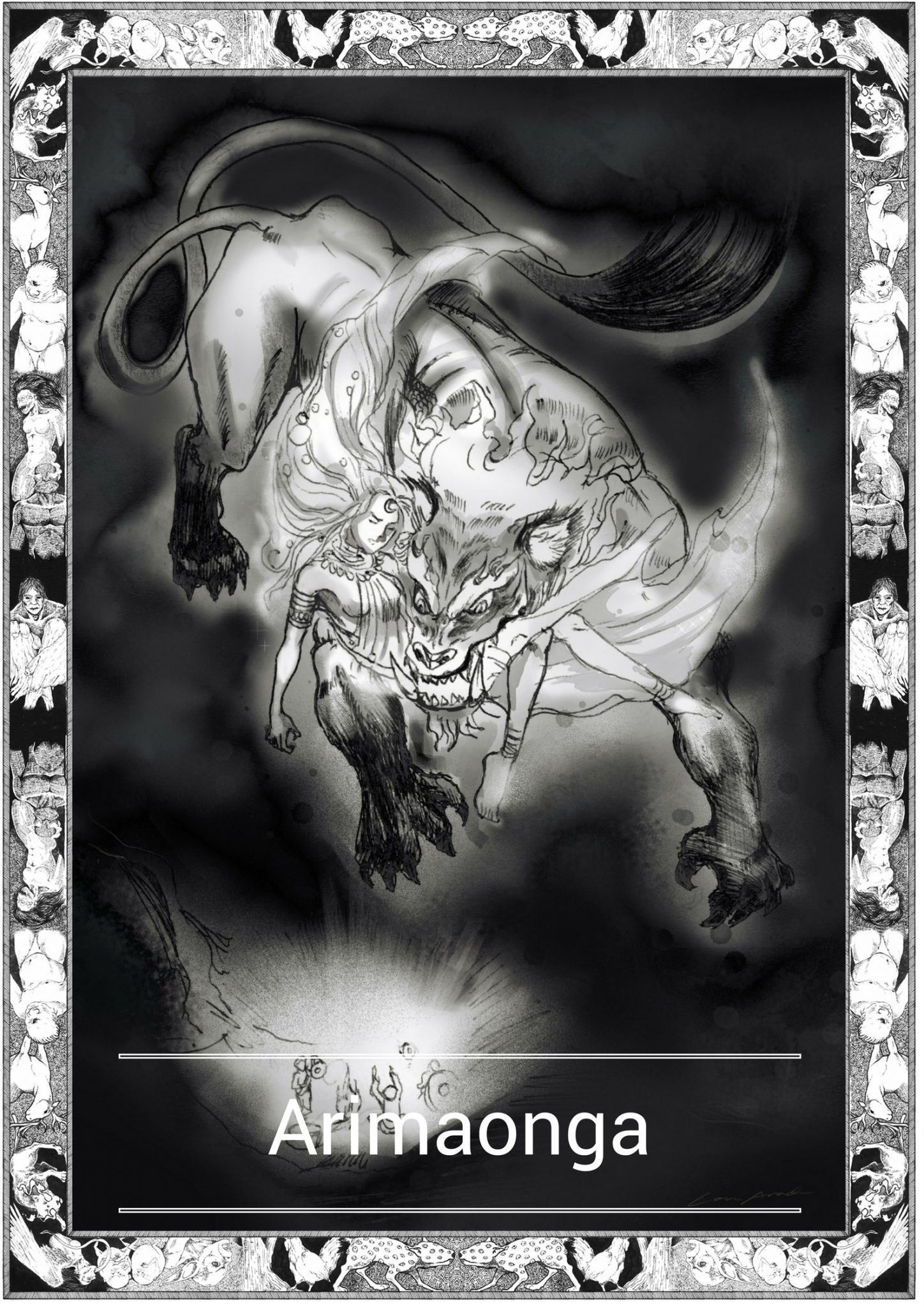
*Note this story is in Pangasinan
Laba-labay kon talagan linlinggisën so bulan. Wala imay mistëryo ya no anto sikato. Isisinag to labat kasi so liwawa to ëd saray makanëpëgan? Unlëlëksab kasi’d mundo so karwahe to? Andi-anggaan kasi so kiwawala to?
Ag ko balot agawaan so migalaw ëd arom a ugugaw, lapo’d walan lanang so anton sakit o di no arom ni ran nagagawa kanian ag ak makakapaway. Ag ko mët nagagabayan so maruksan silëw na agëw, balët no labi, kaiba ray kirëm na bituën tan mapalnan dagëm, say bulan so saksakëy kon kaaro.
Ibabaga da ray mamasikën ya ta no nabalang so bulan ëd tawën, nasumpal mët lay mundo. Inëlëkan ko labat nën saman iman a tongtong, ta panon ton untonda so andi-anggaan a tëlék na bulan? Sikato so kogip a nanmanmaliwan tuwa, say perpekton manangiyabawag na liwawa.
Aman man, angga’d nën anëngnëng ko may leon.
Tatawagën a Arimaonga na saray mamasikën. Ag ko amta’y naliknak nën napapano’y takot so intiron laman ko. Balëg ni nën say pakanonot kon anggaan na ibalëgan na saray ayëp. Tan to lalakapën natan so kaarok a bulan.
Singa tinmonda’y oras ëd saman, anggapo lay nagawaan kon ninëngnëng labat lan aakmonën na ayëp imay bulan. Singa matalandit a migagalaw imay leon, anggapo’d nonot to ya sarag a ipatëy na amin na totoo so gagawaën to.
Mas antakot imay bulan nën say siyak. Naliliknak so kailaloan to’d kawalaan ëd këtkët na leon. Insan ak inmakis.
“Ibulos mo tay bulan, leon, o dino nasumpal so mundo!”
Ag ko amta akin ët nibagak so iraman a salita, singa aliknak labat, singa kaukolan kon iëyag.”
“Ibulos mo tay bulan, leon, o dino nasumpal so mundo!”
Inibaan da ak na saray arom a totoo ëd panag-ëyag. Impaway na mamasikën iray tambol tan gangsa pian manggaway ingal a onsabi anggad tawën.
“Ibulos mo tay bulan, leon, o dino nasumpal so mundo!”
Apagas la ray tëngër mi, ag kami la makaëngas balët ag kami tinmonda. Ag ko itilak imay bulan ëd samay leon, ag itilak na sayan balëy so bulan.
Tinaynan na leon imay bulan kasumpal na singa ag-ontotondan nagagawa. Ginmilig imay bulan insan tinmuloy ya tinumbok to so dalan palibër ëd tawën.
Insan siyak, aban ugaw, nampasalamat ëd saray diyos a ag apeligro so kaarok.
=———————–=
English Version
I have always liked staring at the moon. There’s just the mystery of what she is. Does she shine her light only on the worthy? Is she dressed by the stars? Is she eternal?
There was never a chance for me to play with the other children, there was always some sickness or another that kept me indoors. I could never appreciate the sun’s harsh rays, but in the night, among the starlight and the gentle breeze, my only friend was the moon.
The elders tell stories that if the moon were to cease being in the sky, the world would end. I laughed at those stories once upon a time, for how could the moon ever stop her perpetual cycle? She was the dream made into reality, the perfect harbinger of light.
That is, until I saw the lion.
It was called the Arimaonga by the elders. I didn’t know how to react as terror filled my entire body. It was larger than I thought any animal could ever be. And it was clutching my beloved moon.
Time froze then, I stared helplessly as my only friend was being devoured by the beast. In some perverse way, the lion was playing a game, not knowing that it may just be the doom of us all.
She was more scared than I was. I could feel her hopelessness as she was clutched between the jaws of the lion. I started crying then.
“Lion release the moon or the world will come to an end!”
I don’t know why I started saying those words but it felt natural, like they needed to be said.
“Lion release the moon or the world will come to an end!”
The other villagers stared joining me in the chant. The elders brought out their drums and gongs to make the noises reach the heavens.
“LION RELEASE THE MOON OR THE WORLD WILL COME TO AN END!”
Our throats were hoarse, our breath almost gone but we did not stop. I will not abandon her to the lion, this village will not abandon her.
The lion finally released the moon after what seemed like an eternity. She clutched her sides and resumed her track along the heavens.
And I, a humble child thanked the gods that my only friend was safe.
————————–
*Pangasinan (Salitan Pangasinan) – sometimes called Pangasinense is one of the major languages of the Philippines. It is the language spoken in the province of Pangasinan, on the west-central seaboard of the island of Luzon along the Lingayen Gulf, the northern portion of Tarlac and southwestern La Union, most of whom belong to the Pangasinan ethnic group. Pangasinan is also understood in some municipalities in Benguet, Nueva Ecija, Nueva Vizcaya, and by the Aeta or Aeta of Zambales.
Written by Karl Gaverza
Translation by Dean Alfred Narra
Copyright © Karl Gaverza
Translation Copyright ©Dean Alfred Narra
Inspired by the Arimaonga description in Philippine Folk Literature: The Myths. Eugenio. 2001.
Arimaonga illustration by Lou Pineda
IG: https://www.instagram.com/
